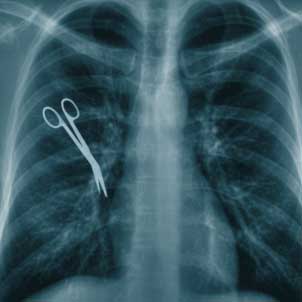
Medical malpractice can often result to devastating ramifications. But because of some exemptions, filing a lawsuit is rarely a common process. According to experts, medical malpractice and medical errors are extremely common. The rates of the claims are increasing annually since 1960s. United States administered lawsuits relating to medical malpractice on the state level, along with the Statutes of Limitations. Depending on the state, the filing of the claim specifies a time or period wherein the injured party can file a suit. Most malpractice cases are tried in the state courts before going to the federal level when things get unsettled.
The medical malpractice cases fall under the law of torts, that concerns professional negligence or breach of duty. Basically, the goal of the tort law is to resolve each dispute before it goes to the court. However, most of these cases eventually land in courts. According to the study by Massachusetts General Hospital, majority of medical negligence lawsuits result to litigation, but they are dismissed eventually. The study revealed that not all claims lead to successful litigation, but most of them are dropped or dismissed by the judge. Because of this aspect, it is clear to identify that there is a difficulty of proving negligence in medical malpractice claims.
It is definitely not a valid claim when a patient complains for not getting a desired outcome of the treatment. The courts will not consider it either. When there is no injury, then there is no damage and therefore, there is no claim. Instead, there are four points to be considered in order that the claim may become valid. The following can be considered a malpractice.
- there has to be an obligation or standard of care that has to owed to the patient;
- the breach of the standard must be established;
- the injury that results from the said breach of duty must be indicated; and
- the damages in relation to injury must be further present.

There are several errors that could qualify as medical malpractice or negligence if an injury or damage occurs after an improper diagnosis or misdiagnosis, medical errors, missed diagnosis, failure in treating a medical condition, delayed treatment, poor health management, aftercare and any act of omission. While many of these instances are sometimes due to an omission while acting reasonably, there are certainly others that are clear point of negligence themselves, like leaving an equipment inside the patient's body, surgery on the wrong organ or spot of the body, and performing a surgery without telling the patient of his rights. In these types of cases, the patient is harmed not because of negligence, but of a clean cut medical malpractice.

0 comments:
Post a Comment